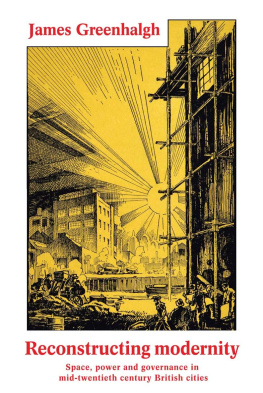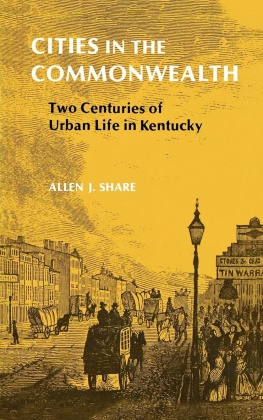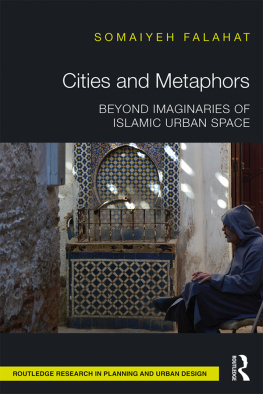Reconstructing modernity
Space, power and governance in mid-twentieth century British cities
James Greenhalgh
Manchester University Press
Copyright James Greenhalgh 2017
The right of James Greenhalgh to be identified as the author of this work has been asserted by him in accordance with the Copyright, Designs and Patents Act 1988.
Published by Manchester University Press
Altrincham Street, Manchester M1 7JA
www.manchesteruniversitypress.co.uk
British Library Cataloguing-in-Publication Data
A catalogue record for this book is available from the British Library
ISBN 978 1 5261 1414 3 hardback
First published 2017
The publisher has no responsibility for the persistence or accuracy of URLs for any external or third-party internet websites referred to in this book, and does not guarantee that any content on such websites is, or will remain, accurate or appropriate.
Typeset by
Servis Filmsetting Ltd, Stockport, Cheshire
For John and Faith, my parents
Contents
An endeavour like a book always involves trying to distribute too little thanks to too many people, but I shall at least make an attempt. First, this book was made possible by a grant from the Scouloudi Foundation in association with the Institute of Historical Research, for which I am very grateful. Leif Jerram, Charlie Wildman, Selina Todd and Penny Summerfield were all there when this project started and offered a tremendous amount of encouragement and patience. The seed of this book was sown on Leifs MA course back in 2004 and not one page would have been written without his influence and effort. Many wonderful people supported this project in ways that they may not have even realised themselves; Pedro Ramos Pinto and Dan Szechi were particularly helpful and had wise words in challenging times. Frank Morts detailed comments went a long way to addressing some serious oversights (although he may well think I should have listened harder). My friends and colleagues at the University of Lincoln: Helen Smith, Christine Grandy, Ed Owens and Sarah Longair, alongside Claire Hubbard-Hall from up the hill, all read a good chunk of the book. Krista Cowman and Jamie Wood offered useful advice on publication over a drink. Otto Saumarez Smith sharpened the edges of some of my architectural terminology, whilst Graham Barrett offered some eleventh-hour grammar help with his usual panache. Simon Gunn encouraged me to pursue the project and has been a huge influence on both the content of the book and my career to date. He is an endlessly generous and supportive individual to whom I (and many others) owe an enormous, and I fear unpayable, debt.
Patrick Doyle, Tom Sharp, Barry Hazley and Rob Portass (honk, honk) deserve special mentions for their fine friendship and indomitable commitment to the pub as an arena for intellectual discourse. It has been my privilege to know and work with all four of you. Gary Butler, Maarten Walraven, Ben Wilcock, Nathan Booth, Tom Scriven, Ben Anderson, Sheona Davies, Alistair Kefford, Stevie Spiegl, Jess Dixon, Ravi Hensman, James Corke-Webster and all the other Picnic Wednesday and Manc History five-a-side members deserve a pat on the back for tolerating me. Another stimulating arena for my work has been the Urban History Group conference, so thanks to my friends and colleagues on the UHG committee and our big brother the Economic History Society for continuing to provide such fertile ground for developing new voices in urban history. Thanks too to everyone who helped me at the national and local archives, particularly David Govier, John Peel and Sarah Hobbs at Manchester, Martin Taylor and Christine Brown from Hull History Centre, and Paul Johnson at Kew. Martin Dodge and Peter Larkham, who have both written on similar subjects, were incredibly helpful as I tried to finish the book. Their willingness to assist a fellow academic whom they barely knew typifies the generosity of spirit that characterises the academy at its best. For Katherine Fennelly I reserve the greatest thanks and all my love. She has offered support beyond the call of duty and has been patient and encouraging through some hard times.
Not everyone who made this possible was directly involved in the study of history, and not everyone made it to the end with me. Liz Harrison and Catherine Durose finally spurred me into resuming my studies by constantly prodding at my ego. Everyone at Corus and TATA steel helped me go on to a new career and I wish them well in the face of the terrible adversity the steel industry is experiencing in the UK and beyond. Wg Cdr James A. Chorlton helped support my studies and I hope he would have approved of this book. Bill Hunter offered useful insights into my writing from a unique perspective and he and Hazel have been marvellous friends and supporters. Mojo (paws off the keyboard!), Magic, Whisper and Solo also deserve a mention, despite them largely hindering the production of the volume. Lastly, I want to thank John and Faith, my parents, to whom this monograph is dedicated. They, alongside the stories of my grandfather, Sgt Fred Greenhalgh, first inspired and encouraged my love of history and the fascination with the Second World War that eventually coalesced into the ideas presented in this book.
| GMCRO | Greater Manchester County Record Office |
| H&DCT | Hull and District Chamber of Trade |
| HHC | Hull History Centre |
| HLG | (Ministry of) Housing and Local Government |
| MoE | Ministry of Education |
| MoH | Ministry of Health |
| MoH&LG | Ministry of Housing and Local Government (Oct 1951) |
| MoT&CP | Ministry of Town and Country Planning (1943) |
| NA | National Archives, Kew |
| RACTP | Retailers Advisory Committee on Town Planning |
| WESC | Wythenshawe Estate Special Committee (Manchester) |
[T]he only fitting tribute that could be paid to the devotion and courage of a brave people [is] to rebuild our City in a manner worthy of its citizens. Few of us will see the completion of the plan. But may we point out the road to a destiny that will be not unworthy of the great victory that the heroism and faith of our people helped to secure.
In the above introduction to the 1945 A Plan for the City and County of Kingston upon Hull, Hulls Reconstruction Committee Chair, Alderman J.L. Schultz, presented a city at a critical juncture in its development.
Cities, of course, are always in the process of becoming something else, whether situated by politicians and planners at some imagined juncture on the journey towards a brighter future or merely through the incremental physical processes that shape the urban landscape.


This book examines Britain at one of the most symbolic of these rhetorical moments of crisis and opportunity the end of the Second World War to reconsider how competing interests shaped cities between the end of the war and the late 1950s. It asks how town planners, architects and local governments sought to create and govern urban space; it questions their objectives and examines the motivations that went into remaking British cities. Alongside this, it considers what consequences their successes and failures had for the trajectory of planned urban renewal that occupied the middle five decades of the twentieth century. In doing so, it asks how we might reinterpret the character of urban modernism that came to define these attempts to replan British cities. The decade that followed the war was neither the precursor to the triumph of architectural Modernism, nor a period of moderate, humanist modernism. Instead, the story told here evidences a decade of profoundly ambitious local government planning; a decade in which attempts to extend modernist practices, primarily at local-corporation level, to govern the totality of everyday life betokened the thoroughgoing radicalism of this phase of urban modernism.







